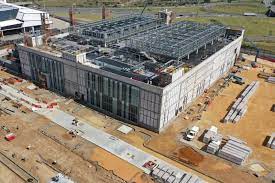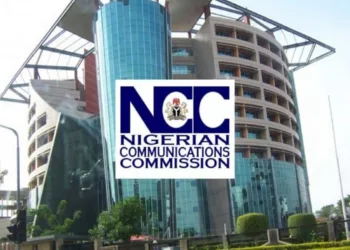To prioritize the sustainability of the data centres industry in Nigeria, the federal government has been tasked to create incentives to promote data centres and expand the deployment of digital infrastructure in Nigeria.
The chief operating officer, WTES Projects, Chidi Ajuzie made this call at the fourth edition of the Telecom Sector Sustainability Forum (TSSF) organized by Business Remarks themed “Mainstreaming Data Centres in the Nigerian Digital Economy.”
Ajuzie stated that, there are currently over 21 Data Centres in Nigeria with Lagos being home to the top tier data centers Open Access Data Centre (OADC) by WIOCC Group Company; Medallion (Digital Reality); Rack Centre; MDXi (MainOne, an Equinix Company), 21st Century; ADC, MTN, CEWA, Galaxy BackBone and 9mobile.
He, however, noted that Asburn, Virginia USA, is the epicentre of the world’s data centre alley anchoring a collection of nearly 300 data centres, handling more than one-third of the world’s online traffic.
While speaking on the economic impact of Data Centres, he quoted a report by the Northern Virginia Technology Council that estimates that the area’s data centers were responsible for nearly $174 million in state revenue and $1 billion in local tax revenue in 2021.
Loudoun County alone takes in close to $700 million annually in tax revenue from data centres, enough to cover all the country’s recurring expenditures. The region data centres also employ 5,500 people, excluding construction workers.
To ensure inclusivity and grow more data centers, government needs to expand digital infrastructure initiatives by encouraging policies and guidelines that will drive its continued expansion and its integration to bridge the digital divide, he stated.
The incentives, according to Ajuzie, should include improving power supply to support digital infrastructure operations. He posited that the need to develop national plans and targets for the adoption of digital services and track milestones, leveraging the existing NDEPS framework, can not be overemphasized.
Ajuzie said data collected from operators’ networks should be effectively utilized for data-driven decision-making, ensuring targeted service improvements and policy formulation, thereby generating more Big Data and spurring data centre growth.
Other recommendations are not limited to encouraging citizens to engage with digital services. This is because online and digital engagement grows the data centre ecosystem. Digital literacy & technology skills to support adoption should be encouraged.
Ajuzie emphasized, “Wherever they are located, the need for data centers is only going to increase in the coming years, spearheaded by the use of AI which depends on massive amounts of data and computing power and lots of electrical energy as well as evolution.”
Speaking on the theme, Ajuzie explained that the government’s proactive and timely policies are the much-needed catalysts for the data centre business and to address the increasing demands of the digital economy.





